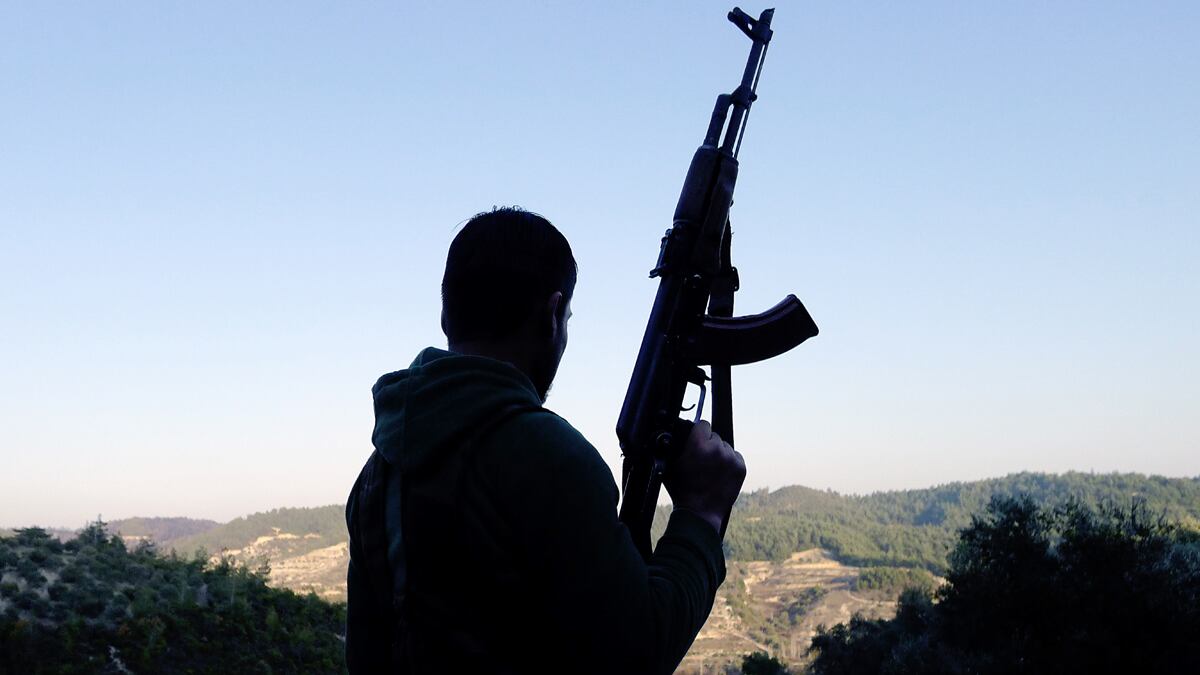Ziyad, 28, is an activist lost. When Syria’s revolution began, in March 2011, as a protest movement stressing peaceful change, he dove into the mix, joining with like-minded young people across the region in the rush of the Arab Spring. Now that the uprising in Syria has become an armed and increasingly bloody affair, Ziyad, who asked that his real name not be used for safety concerns, is not sure where he stands. He experimented with the revolution’s violent side, he says, then pulled back, and has found himself in a murky place, drifting back and forth between Turkey and Syria as he works to help the cause while trying to keep his focus on its civilian side. He has settled into depression, as he puts it. “I can’t believe what the revolution was and what it has turned out to be,” he said on a recent night in Antakya, a Turkish city near the Syrian border.

As the conflict in Syria drags on, young activists are still playing a crucial role—coordinating and communicating over the grassroots networks they utilized to organize protests, documenting and disseminating news, and connecting journalists to people on the ground. But as the death toll mounts, some are struggling with the idea that their efforts often work in lockstep with an armed revolt. “Many activists are now aligned with people they would rather not be,” says CyberDissidents.org co-founder David Keyes, who has been analyzing the role of activists in the conflict. “But war makes strange bedfellows.”
In his resignation as the U.N. peace envoy Thursday, following a failure to bring about even a basic cease-fire, Kofi Annan offered an impassioned assessment of how far Syria’s struggle has come from its roots. “A mass movement, born in the demand for civil and political rights and the empowerment of voices for change, emerged in Syria after March 2011,” the former U.N. secretary-general wrote in an op-ed for the Financial Times. “But, for all the extraordinary courage that it took for the protesters to march each day in the face of escalating violence by the government, this did not become a movement that bridged Syria’s communal divisions. Opportunities to overcome this were then lost in increasing violence.”
There is no equivalence between the regime of Syrian President Bashar al-Assad, which has used bloody force to crack down on the revolution from the start, and the forces fighting against it. Many aligned with the latter say they had little choice but to take up arms as violent repression, often against civilians, gathered steam. “You don’t go to the monster and ask his politics,” says a man working with rebel fighters in Banias, a focal point of the protest movement from its early days. “You just defend the people against it.”
But the situation has led to a sense of confusion for many on the activist front. “Activists should not believe in military solutions,” says Marwan Maalouf, a human-rights lawyer with the Institute for War and Peace Reporting who has spent years working with Syrian activists. “But I can’t judge their decision. I don’t even know myself where to stand in this messy conflict.”
Other analysts are less forgiving. As’ad AbuKhalil, a professor of political science at California State University, Stanislaus, who runs the popular Angry Arab blog, says the revolution has been fully co-opted—with the armed element, led by the main umbrella fighting front, the Free Syrian Army (FSA), working to pull the civilian elements to its side. “The Free Syrian Army took over and hijacked the uprising. Most activists stayed home and washed their hands of what was going on, and some still supported the FSA even if they did not join,” he says. “There is no civilian movement left: it was killed by the regime and the FSA.”
The FSA, for its part, is working to portray itself as a tent under which all opposition can reside. Speaking to Newsweek and The Daily Beast last week, Louay al-Mokdad, a former activist who is now an FSA logistics and media coordinator, said activists were busy helping rebels, and vice versa, painting the alliance as a natural one. “All of us are now FSA,” he said.
Many activists may take issue with that assessment, but some admit to assisting with things like communications and logistics even if they stress their independence at the same time. “Most of the people involved in this revolution, whether media or any other kind of activist, have sympathy for the FSA,” says Amr, an administrator with the citizen-journalist group Sham News Network who gave only his first name. Sham provides logistical help to the FSA, he says, but works to maintain its editorial integrity.
Other one-time activists say they’ve simply switched sides. Rami Karaali started the revolution as a traditional activist, helping to organize protests in Latakia and doing media work. Now he works full-time to coordinate support for rebel fighters—logistical and media, as in the early days, and now cash and weapons too.
It wasn’t a sudden change; he can’t say exactly when it took place. He remembers helping to get small arms for fighters who wanted to take over government checkpoints, which were causing increasing trouble in town. “That’s when the regime started to attack neighborhoods, search for activists, arrest everyone. So that’s when we started looking for better weapons, to make some balance on the ground,” he says.
Sitting at an Antakya café on a recent trip to Turkey to arrange FSA supplies, he points to reports of massacres and the brutal violence of the crackdowns—he can no longer imagine bringing down the regime by way of “peaceful protest,” he says, using his fingers to put quotation marks around the phrase. “If needed, I will fight.”





